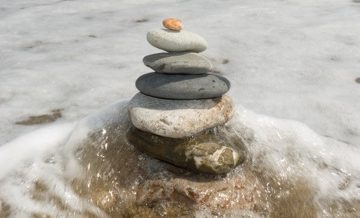This is an excerpt from an article in the New York Times Magazine a few years ago:
William C. Moyers, a recovery advocate (and the son of the journalist Bill Moyers) who for 12 years has been free of crack and alcohol, was invited to speak at the M.I.T. conference. In a room full of scientists and addiction researchers obsessed with the intricacies of the human brain, Moyers read a lecture that reminded them that treating addiction might be even more complicated than they thought.
“I have an illness with origins in the brain…but I also suffered with the other component of this illness,” he told the gathered researchers and scientists, some of whom dutifully took notes. “I was born with what I like to call a hole in my soul…A pain that came from the reality that I just wasn’t good enough. That I wasn’t deserving enough. That you weren’t paying attention to me all the time. That maybe you didn’t like me enough.”
The conference room was as quiet as it had been all day. “For us addicts,” he continued, “recovery is more than just taking a pill or maybe getting a shot…recovery is also about the spirit, about dealing with that hole in the soul.”
What is the hole in the soul? It is an unmet longing for connection with others, for communion, for oneness…a longing to realize who we are. It is a longing to know we are loved, to find ourselves lovable. It isn’t only addicts who experience the hole in the soul.
So how do we deal with a hole in the soul? We have this deep longing for love, for freedom, for creativity, for happiness, but what happens is we fixate on substitutes that take us away from what we really long for, away from the very moment that could be the source of freedom.
What is it we fixate on? What do we try to use as a substitute for the real longing?
It could be approval. We might think,“If I just get this praise or recognition, then I’ll know I’m good enough. Or it might be money, or things that money can buy. If I have this house, or this kind of car, or a particular brand of clothing, then I will be acceptable. Food is a very common substitute. Have you ever found yourself feeling lonely or sad, and searching the refrigerator for the remedy? Other substitutions might be sex, or drugs, or alcohol.
We sometimes describe this fixation as “if-only mind.” We believe that, “if only this would fall into place, then I would be happy.” Does that sound familiar? “If only I’d get my health back.” “If only I’d get that partner.” Or, “if only that partner and I could really have it work out right.” Or, “if only I’d lose the 20 pounds.” The list is endless. We fall into believing that these things can make us happy.
But we cannot deal with the hole in the soul as long as we’re pursuing substitute gratifications. When we do that, we are taking ourselves away from the moment where it would be possible to find that which we truly long for. Only in the present moment can we experience aliveness, love, understanding, freedom.
How do we move from pursuing substitutes to coming home to presence? Start by identifying when you are trying to fill the hole in your soul. Where are you thinking, “if only…” If only I had this thing. If only I could be like this. When you notice your thoughts or behaviors moving you towards substitutes—pause. Just stop. Mindfully recognize what is happening, you might just label it “wanting, wanting,” and with gentleness and interest, become aware of the force of wanting.
Just this pause and deepening of attention will start to open you to more freedom. You might first bring awareness to layers of hurt or fear. You might, if you stay, finds some real healing, some compassion and a flow of aliveness. Or you might move into the behavior, but with more awareness than before. Either way, the pause puts you on the path of healing unmet needs and discovering the source of your deepest longings.
For more from Tara, visit https://www.tarabrach.com


